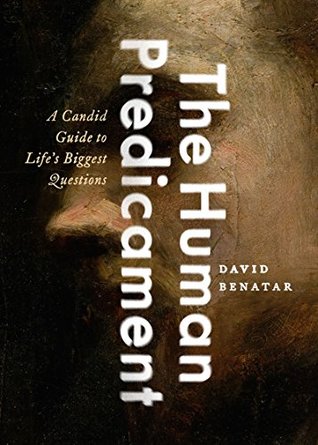More on this book
Community
Kindle Notes & Highlights
Read between
April 10 - May 4, 2021
If one’s end is to avoid those of life’s burdens that can only be avoided by the cessation of one’s life, then suicide is rational.
Indeed, in such circumstances, the burdens may not so much cloud the mind as focus it.
If suicide were morally problematic because it leads to an earlier death than would naturally have occurred, then saving lives, at least those not threatened by moral agents, is also morally problematic because it also subverts a person’s natural fate.
too much bravado ceases to be courageous and is instead foolhardiness or even foolishness.
the possibility arises that some of life’s burdens may be so great and the point of bearing them so tenuous that enduring them further is not courageous at all and may even be foolish.
Those who accuse suicides of cowardice fail to see just how demanding the task of killing oneself can be.
In such circumstances, what is selfish is the insistence that the prospective suicide remain alive, not that she seeks her own demise.
if one’s burdens are, for the moment, relatively minor and the costs of suicide (to others or oneself) are great, then enjoying one’s life despite the burdens may indeed be the most reasonable reaction.
However, an action cannot be judged unacceptable merely because it is irreversible.
He may merely judge his current condition to be unacceptable and conclude that, no matter how much his situation may improve later, that outcome is simply not worth what he would have to endure in the interim.
Sometimes, there is no realistic hope of improvement. In such situations, one may be faced with a choice between the remotest of possibilities that one’s condition will improve and the certainty that one will suffer terrible burdens in the interim.
If the norm is to have an inflated sense of how well one’s life goes, then those who have either an accurate view of their wellbeing or merely a view that is less exaggerated than the norm will appear to most people as underestimating the quality of their lives.
The views of the unhappy may well be harder to have and to live with, but they may be more accurate and, in that sense, more rational.
First, the perception of one’s quality of life affects the actual quality of one’s life.
When somebody truly underestimates, we should try to convince him that his life is not as bad as he thinks it is, particularly if his being convinced would prevent his suicide. By contrast, in the case when somebody overestimates the quality of his life, we should not try to convince him that he is deluded and his life is actually not worth continuing.
One important reason why we would try to show him that his life is actually better is that we would thereby bring him some relief.
However, the rationality of suicide is not reducible to whether one is or is not accurately assessing how good one’s life is.
The absence of cosmic meaningfulness does not in itself seem to be a fate worse than death, not least because, even after death, one’s life—and one’s death—will remain utterly meaningless from the cosmic perspective. In other words, death does not relieve that problem.
A preferable alternative would be to moderate one’s subjective response to the fact of cosmic meaninglessness, at least with regard to suicide.
Thus, those most likely to be so miserable because of the meaninglessness of their lives that suicide might bring them relief are those who feel that their lives lack even sufficient terrestrial meaning (and this lack is not compensated for by the presence of other goods that contribute to quality of life).
while their lives may be cosmically meaningless, they do have other kinds of meaning.
Thus, we are involuntarily brought into a cosmically insignificant existence that bears considerable risk of serious harm.
There is nothing unreasonable about the person who says that though he would rather continue living, that preference is not so strong that he would rather continue living in an unpleasant condition.
Moreover, it would be indecent to condemn those who, having deliberated carefully about the matter, decide that they no longer wish to endure the burdens of a life to which they never consented.
The only meaning human life can have is from some or other terrestrial perspective.
Sandwiched between birth and death is a struggle for meaning and a desperate attempt to ward off life’s suffering.
After all, optimism makes life so much easier. It helps one confront all the horror of the human predicament. It thus mitigates or palliates the predicament. If the more objective features of the human predicament are unavoidable, at least we should be sheltered from those subjective features—including the perception of the objective features—that are avoidable.
It is possible to be an unequivocal pessimist but not dwell on these thoughts all the time.
It allows for distractions from reality, but not denials of it.
One can advise the gloomy pessimist to distract himself for his own good, but it is certainly easier said than done.
“Optimists and pessimists differ only on the date of the end of the world.”


